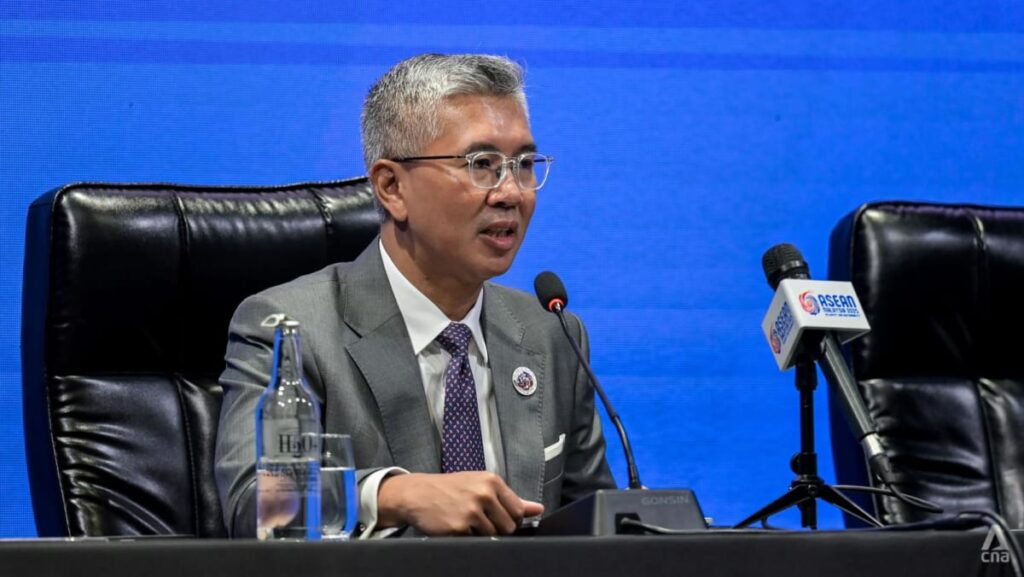It will feature “forward-looking and commercially meaningful provisions aimed at further boosting regional trade, enhancing supply chain resilience, and also boosting deeper economic integration within ASEAN”, Tengku Zafrul said.
Singapore, which chaired the upgrade negotiations, said it will continue to work with ASEAN and global partners to secure the bloc’s long-term growth, competitiveness, and shared prosperity.
The successful conclusion of the upgrade negotiations “demonstrates ASEAN’s commitment to building a more seamless and resilient economic region, as well as to preserve a rules-based trading environment to better support businesses’ operations in the ASEAN region amidst an uncertain global economic climate”, Singapore Trade and Industry Minister Gan Kim Yong, also the country’s deputy prime minister, said in a statement on Sunday.
Earlier on Sunday, Malaysia’s Foreign Minister Mohamad Hasan highlighted that ASEAN nations are among those most heavily hit by US tariffs.
“We must seize this moment to deepen regional economic integration, so that we can better shield our region from external shocks,” he said in opening remarks at a meeting of ASEAN foreign ministers.
The US-China trade war is “dramatically disrupting” production and trade patterns worldwide, Mohamad said, cautioning that a global economic slowdown was likely to happen.
TAKING ASEAN-CHINA TRADE FORWARD
ASEAN is China’s largest trading partner, with the value of total trade reaching US$234 billion in the first quarter of 2025, according to Chinese customs data.
The so-called 3.0 version of CAFTA will “promote the deep integration of the production and supply chains of both sides”, China’s commerce ministry said in a statement on Wednesday, when it announced the completion of negotiations.
The upgraded pact will also “inject greater certainty into regional and global trade and play a leading and exemplary role for countries to adhere to openness, inclusiveness and win-win cooperation”, the ministry said.
China has intensified engagement with ASEAN since Trump announced hefty import tariffs on countries around the world and targeted China with even heavier levies. Some of the levies have since been delayed while China and the US agreed this month to pause some of their tariffs.
In his Sunday remarks, Mohamad described ASEAN as a region where geopolitical ambitions, as well as economic and security interests, intersect.
“External pressures are rising, and the scope of challenges has never had higher stakes,” he said, stressing that ASEAN unity is now “more important than ever”.
“It is therefore crucial that we reinforce the ties that bind us, so as to not unravel under external pressures.”

